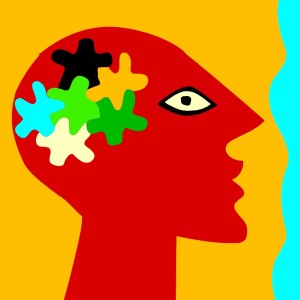 Exercising the Mind With Mindfulness: A Great Piece to the Mental Health Puzzle
Exercising the Mind With Mindfulness: A Great Piece to the Mental Health Puzzle
In a New York Times article published on May 12, 2014, Daniel Goleman writes, “Poor planning, wandering attention and trouble inhibiting impulses all signify lapses in cognitive control. Now a growing stream of research suggests that strengthening this mental muscle, usually with exercises in so-called mindfulness, may help children and adults cope with attention deficit hyperactivity disorder and its adult equivalent, attention deficit disorder.”
The power of mindfulness and the positive impact it has on the lives of my clients has been evident to me ever since I began incorporating it into my work over six years ago. Mindfulness is awareness. It is being aware of what we are thinking and feeling- free of judgment. Mindfulness is observing and describing thoughts and feelings without reacting to them. It is staying present and doing one thing at a time. When we are mindful we may notice our focus straying and are able to calmly bring it back to the here and now.
While working with individuals and groups I have seen mindfulness practice decrease the effects of trauma, reduce anxiety, improve attention, decrease symptoms of depression, and most of all stop impulsive and explosive reactions.
In Goleman’s recent New York Times article, he talks about mindfulness research and how it benefits people suffering from attention deficits. I have no doubt that mindfulness practice strengthens our cognitive control which not only helps people suffering from attention problems but also helps people regulate their emotions and better tolerate distress without turning to self-destructive behaviors.
Goleman writes,
…researchers are testing mindfulness: teaching people to monitor their thoughts and feelings without judgments or other reactivity. Rather than simply being carried away from a chosen focus, they notice that their attention has wandered, and renew their concentration.
According to a recent report in Clinical Neurophysiology, adults with A.D.D. were shown to benefit from mindfulness training combined with cognitive therapy; their improvements in mental performance were comparable to those achieved by subjects taking medications.
The training led to a decline in impulsive errors, a problem typical of A.D.D., while the cognitive therapy helped them be less self-judgmental about mistakes or distractedness.
Mindfulness seems to flex the brain circuitry for sustaining attention, an indicator of cognitive control, according to research by Wendy Hasenkamp and Lawrence Barsalou at Emory University.
When we practice mindfulness on a daily basis we actually retrain our brain to function in a new way. We are able to pause before we react, giving us more control over reactions that may cause us shame and regret. We are able to bring our focus back to whatever it is we are trying to accomplish, whether we are trying to finish our school work, clean our messy closet, or listen to our child, our spouse, or our friend. Practicing mindfulness decreases our anxiety as we begin to see our thoughts and emotions as things that will eventually pass rather than things we need to cling to or instantly push away.
Yes, mindfulness is a powerful piece to the mental health puzzle, and it is an exercise worth learning. To read Daniel Goleman’s New York Times article in its entirety, please click this link. Exercising the Mind to Treat Attention Deficits
To learn mindfulness tools and techniques to stop impulsive or explosive reactions, check out the book The Snowball Effect: How to Build Positive Momentum in Your Life. Now available on Amazon and barnesandnoble.com. Chapter one focuses on letting go of resentment, chapter two focuses on letting go of harsh self-judgments, and chapter three shows us how to let go of impulsive and explosive reactions. Great for people in recovery, too!
This post was written by educator and licensed psychotherapist Kristin Barton Cuthriell, MEd, MSW, LCSW.
Related articles



Leave a Reply